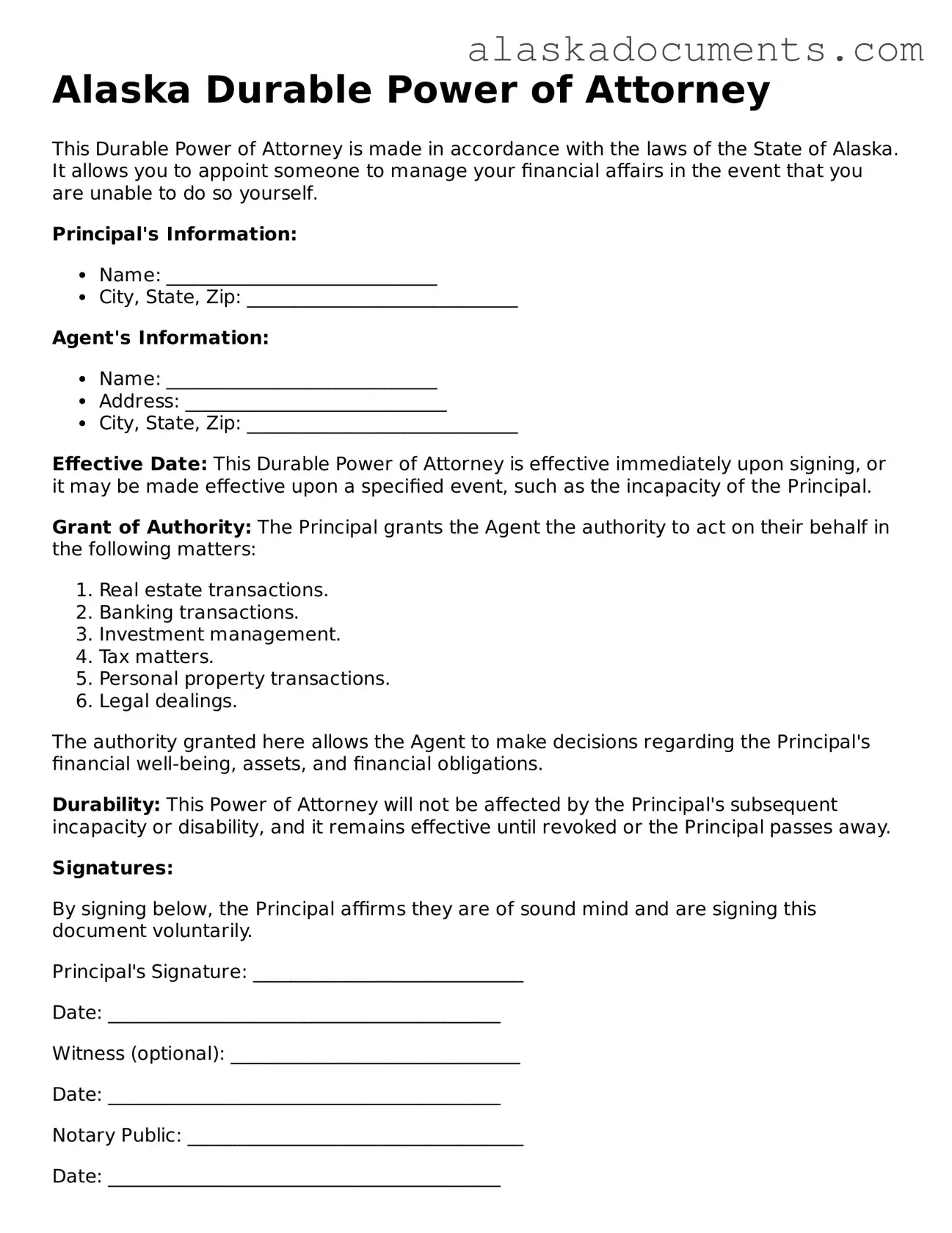Fillable Alaska Durable Power of Attorney Template
A Durable Power of Attorney (DPOA) in Alaska is a legal document that allows an individual to appoint someone else to make financial or medical decisions on their behalf, even if they become incapacitated. This form ensures that your wishes are honored when you cannot communicate them yourself. Understanding how to create and use a DPOA is essential for effective planning and protection of your interests.
Access Your Durable Power of Attorney

Fillable Alaska Durable Power of Attorney Template
Access Your Durable Power of Attorney

Access Your Durable Power of Attorney
or
▼ Durable Power of Attorney PDF
Complete the form and get on with your day
Complete Durable Power of Attorney online — edit, save, download with ease.